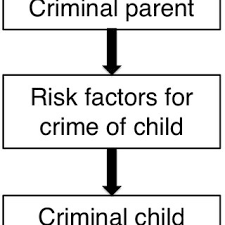Wealthy parents in Chicago are transferring legal guardianship of their children so that the family will pay less for college.
Need based aid is based on income. Families with more assets and higher incomes qualify for less financial aid. If the Opulofskies have a combined income of $500K/year and have paid off their million dollar home, a college might ask them to pay full tuition. If the Penurivitches take home $60K/year and have little equity in their $200,000 home, they might be expected to pay much less. The federal methodology is a little more complicated and requires more disclosures, but that’s basically it. Families without resources are typically expected to pay less.
Of course, if the Opulofskies transfer legal guardianship of their children to the Penurivitches, then the Opulofskies score big financial aid. And pay less. Apparently it’s a simple and straight-forward process to transfer legal guardianship of your children.
To make sure I understood the Opulofskie point of view, I interviewed Mrs. Lavishna Opulofsky. She was in the tub when I spoke to her, bathing in pasteurized Tibetan yak milk. “I understand that you have transferred legal guardianship of your daughter, Afflueska, to the Penurivitch family,” I began.
“Of course we did,” Lavishna replied. “What part of ‘now we pay less’ did you not understand?”
“Do you understand that resources are finite and that Afflueska is using funds that will be unavailable for someone of more modest means?”
“Modest means? Ha!” Lavishna countered. “You mean poor people! Did I tell those people to be poor? I most certainly did not. I did not tell those poor people anything. Why would I? And how could I tell them anything if I wanted to? I don’t know any poor people. There are no poor people in my neighborhood. But the point is that there have always been poor people. Poor people are mentioned in the Bible.”
“So you’re saying that economically disadvantaged people should not go to college?”
“That is not at all what I am saying!” Lavishna bellowed. “Poor people can send their children to college. If they can afford it.”
“But aren’t you using exactly those resources that would allow low-income and first generation families to afford to go to college?”
“You’re not listening,” Lavishna went on. “I’m on board. It’s time to pull up the rope. Afflueska deserves to go to an expensive college because she is my daughter. She is not the daughter of a poor person. She’s very smart by the way. She has her own Facebook page. There’s just no reason for us to pay all that money for college. Haven’t you heard? College is expensive.”
“So you have transferred legal guardianship of Afflueska to the Penurivitch family to avoid paying your fair share?”
“Who is to say what is fair? If you found a dead person in a field, you wouldn’t check to see if there was any money in his wallet?”
Before I could answer, Lavishna starting bellowing that the hot Yak milk had turned tepid. I left the bathroom and went home to look up moral development. Here’s what I learned.
A child wants a cookie. The child puts her hand in the cookie jar. Her father sees her put her hand in the cookie jar. The father says, “you may not have a cookie.”
The child understands that taking a cookie will result in a punishment, harsh words from her father. When the child is older, she may come to understand that there are only a certain number of cookies and that were she to take a cookie, someone else might not be able to have a cookie.
Lawrence Kolberg studied moral development. He was interested in the reason that a child might refrain from taking a cookie. Kohlberg called not taking a cookie to avoid punishment “pre-conventional morality.” Not taking a cookie because there might not be enough cookies for everyone is a higher level of moral thinking. I can only wonder what Kohlberg would make of Lavishna Opulofskie.
We seem to have reached a low point. Although I have to say I thought we were scrapping the bottom of the barrel recently with the Varsity Blues Scandal. At least those criminal parents were willing to pay tuition for their unexceptional children to attend elite colleges. Now parents want to steal resources from those who actually qualify.
What next? I shudder to think.
The Wall Street Journal did the actual research. Click on their excellent article here.

At the risk of “explaining the joke,” Lawrence Kohlberg and his lifetime of research into the moral development of children is real. And worth knowing a little about. Families transferring legal guardianship of their children to avoid paying their fair share for college is real. The Opulofskie family is my own invention to make a–hopefully humorous–point.


